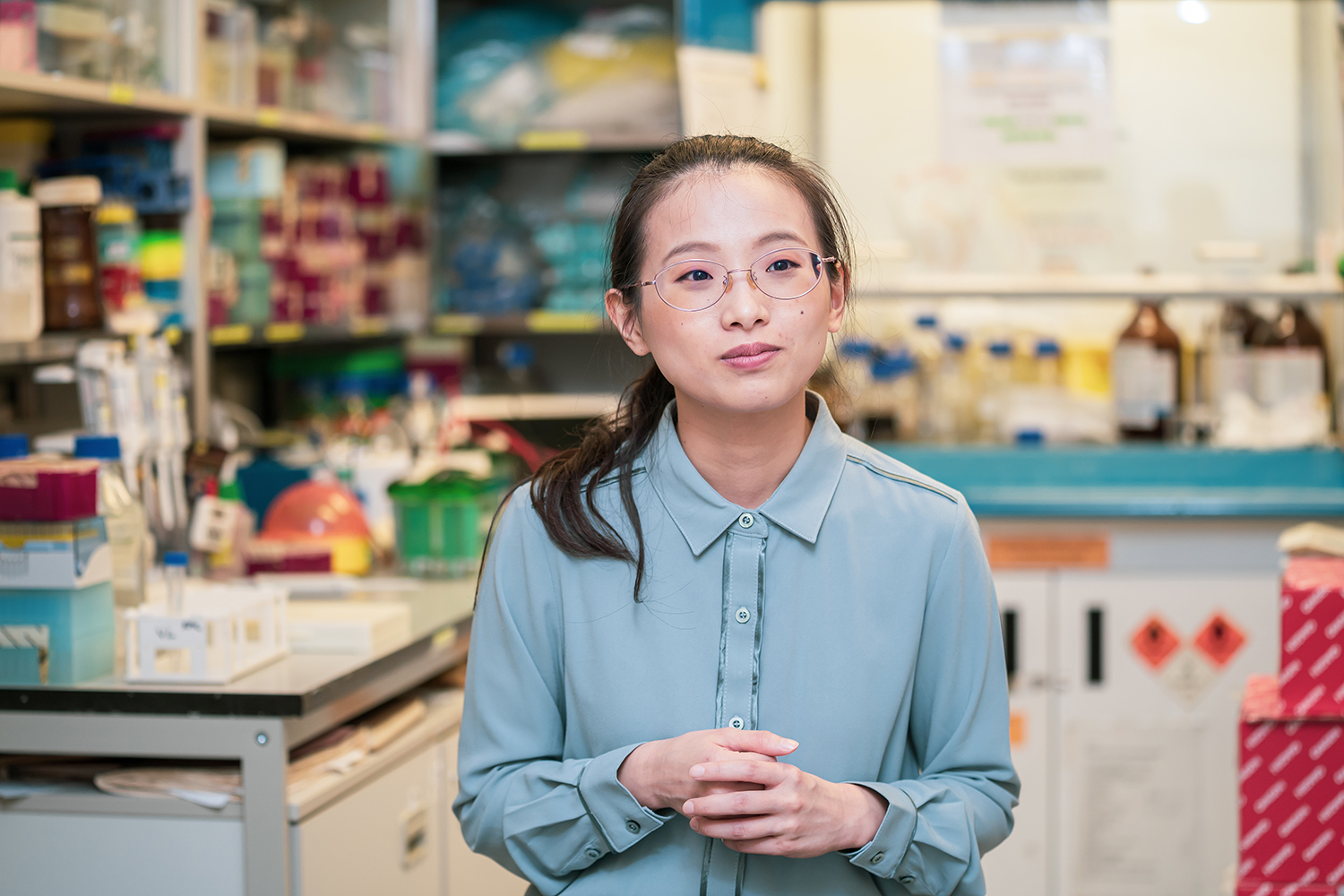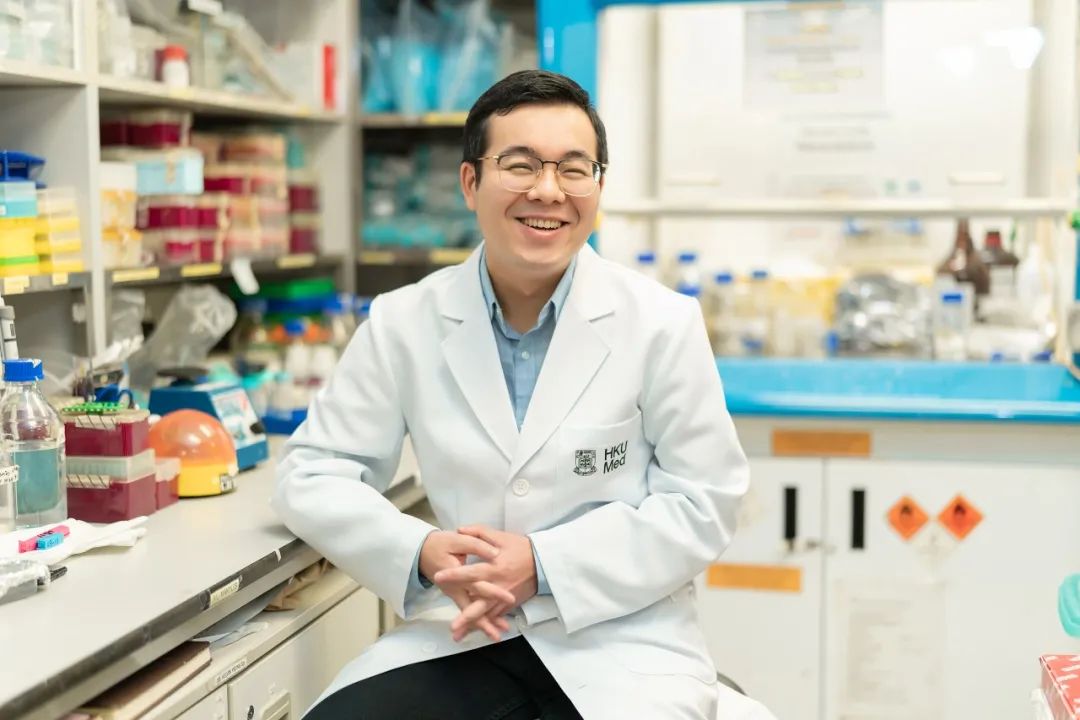Research Area 1: Orthopaedic Biomechanics and Biomaterials
- Digital approach to investigate biomechanics of bone and joint
- Biomechanical analysis on musculoskeletal system
- Biomechanics of sports related injuries
- Biomechanics of orthopaedic implants such as total hip prothesis
- Orthopaedic implant design and development
- Biomaterial biomechanics
- Cell biomechanics and micro/nano-biomechanics
- Mechanosensing and mechanotransduction in skeletal cells
- Antibacterial biomaterials for clinical applications
- Novel micro- or nano-biomaterials for musculoskeletal tissue substitutes
- 3D bio-printing
Research Area 2: Physiology, Disease Modelling, and Regenerative Medicine
- Novel animal models of musculoskeletal disorders
- Experimental scoliosis
- Genetics of degenerative disc disease and osteoarthritis
- Gene functions in articular and intervertebral joints
- Proteoglycan metabolism in skeletal tissues
- Bone healing and fracture repair
- Genetic profiles of bone tumours and cell-biomaterial interfacial biology
- Developing disease-modifying agents for treating joint degeneration
- Programming stem cells or progenitors for joint regeneration
- Role of fibrosis and its control in tissue repair and mesenchymal stem cell-based therapies
Research Area 3: Clinical Data-Driven AI Modelling in Orthopaedics
- Big data centre for large-scale population-based and epidemiological studies (back pain, disc degeneration, scoliosis)
- Scoliosis auto-screening and progression predictions
- Degenerative lumbar disease auto-diagnosis and progression predictions
- Surgical outcomes and predictive modelling
- Risk factor assessment and prediction; novel imaging analytical models
- Volumetric medical images 3D reconstruction and visualisations
- AI biomarker fast-screening
- "omics" modelling and analyses
- Data capturing and complex regressions
- Clinical patient and surgeon outcome medical models
- Investigator initiated translational research projects with industry collaboration including
- Design, development, validation and regulatory application of novel osteoporotic fracture fixation devices
- AI software development for machine learning based segmentation of bone models and bone biomechanics
- Design and validation of 3D printed AI tools and implants. Areas include automated and accurate bone modelling allowing fast 3D geometry development
- Novel point clouds trabecular bone simulation engine providing new tool for robust implant failing simulations and new implant designs
- 3D modelling and printing for personalised medicine i.e. pre-operative planning and intra-operative guidance for advanced trauma, spine and joint operations
Research Area 4: Clinical Neurophysiology and Neural Engineering in Orthopaedics
- Neurophysiological detection, neuroimaging, and neurorehabilitation in orthopaedics and spinal disorders
- Bioelectrical engineering and biomedical devices in orthopaedics
Find Out More
Information on selected projects or research areas: Interested candidates are advised to email the relevant supervisors. Please enclose with your email: (i) your CV, (ii) a brief description of your research interest and experience, and (iii) two reference letters (reference letters not required for HKUMed UG students seeking MRes[Med] or URIS projects)
Research studies enquiries specific to the Department/School’s research should be directed to the Departmental Research Postgraduate Advisor: Professor WW Lu ( wwlu@hku.hk)
Information on the research programme, funding support and admission requirements could be found on the RPg Admissions website.
General admission enquiries should be directed to rpgmed@hku.hk.
Meet Our Students

HSU Yu-ching
Place of Origin: Taiwan
Progress: PhD Year 3
Supervisor: Dr VYL Leung
“Patience and perseverance goes a long way on your research journey”
After beginning her research postgraduate career here at HKUMed, Yu-Ching Hsu (Year 3 PhD student in Department of Orthopedics and Traumatology) quickly found herself surrounded by a group of self-driven colleagues who served to be a great source of motivation, but also pressure to perform well, “The research culture here is that everybody is working so hard! The stress sometimes can be a little overwhelming”.
With her research centred on understanding the etiology and pathogenesis of human intervertebral disc degeneration, a typical day in the lab can entail a variety of tasks i.e. refreshing cell culture medium, cell compression, other molecular research steps such as RNA extraction and real-time PCR. Though lab work can be, in her own words, “not always joyful”, Yu-Ching also advises any future prospective researchers to trust the process.
“Sometimes you may feel bored or even frustrated with failure, but it doesn't mean you are wrong. Just be patient, let all the negative feelings go - keep on trying – until you finally reach your goal."
June 2021

WANG Yuchen
Place of Origin: China
Progress: PhD Year 3
Supervisor: Prof PKY Chiu
隨着對研究學習的了解日益加深,王宇辰深刻地感受到科研與臨床密不可分。在完成本科學習之後,他選擇了在港大醫學院進行科學研究,從臨床醫學,走進了實驗室。
「現在人口老齡化嚴重,未來老年人骨關節炎會成為一個廣泛的社會性問題。但目前,骨關節炎相關研究突破較少,必須有先行者,這個領域才有更多發展的可能。」這是王宇辰選擇骨關節炎課題的主要原因。
他冀望於骨關節炎的研究課題有所突破,為臨床實驗打下醫學科研的基礎。目前骨關節炎的研究還停留在實驗室階段,接下來將面對漫長的探索過程,至少十年才會有希望出現成果。「實驗最重要的是保持初衷,不能把研究看成一種負擔。」
February 2021


Follow HKUMed